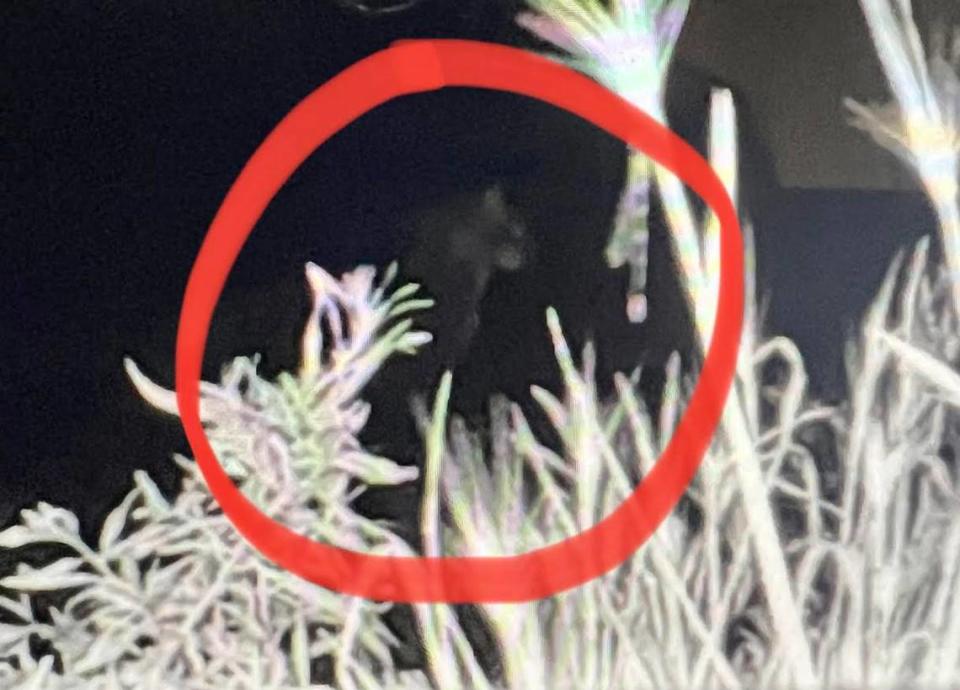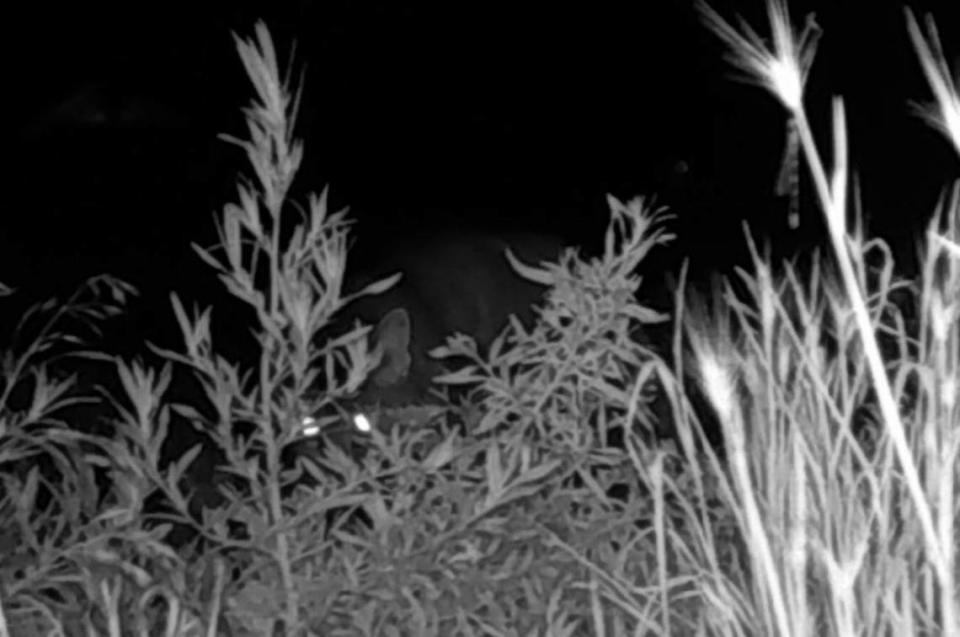Officials didn’t believe a cougar attacked a Tri-City woman’s dog. Then she got a picture
A West Richland woman’s dog was attacked by a cougar in the early morning hours just feet from her daughter’s sandbox, she says.
Amy Phillips saw the cougar biting her dog on July 17, she said, and a game camera she recently bought captured the image of a cougar the night of Saturday, July 29.
Phillips, the owner of Flora Lane Flowers, was woken up by her tiny dog about 4 a.m. July 17.
She let Kuma out and as the 9-pound dog walked off, she stepped back inside to grab her robe and flashlight.
“I came right back out and within that matter of time the cougar had got her,” Phillips said.
The cougar immediately ran as the beam of her flashlight passed over him and she watched it run into the trees, she said.
“Then I saw my dog laying there lifeless,” she said.

Kuma, a rescue that appears to be a papillon and chihuahua mix, survived her bite wounds. They are healing, and she is starting to walk better, her owner said.
Phillips contacted Washington state Fish and Wildlife, but an officer was skeptical that it was a cougar. He suggested it might be a coyote.
But Phillips says she knows what she saw. And she’s concerned about not only her own family’s safety but those of others in West Richland.
She lives by a canal on three acres near Bombing Range Road and Van Giesen Street, and the cougar was just feet from the sandbox where her 5-year-old plays when it attacked her dog.
She set the camera up on Friday, forgetting to set the time and date stamp. The next night the camera captured an image of what appears to be a cougar.
Wanting to warn neighbors, she had a post from her personal Facebook page shared to the private West Richland Residents Facebook page.
However, she posted online Thursday evening that a Fish and Wildlife official made a return visit to her property that day and said it was a house cat.
“Trust me, a mere house cat didn’t attack my dog,” she posted. “I witnessed the whole incident and even caught it on camera. I know what I saw.”
She’s now set up a second camera and she’s keeping a close eye on her daughter and her dog when they are outside.
Cougars in Tri-Cities area
Mountain lions spotted in parts of the Tri-Cities area where people live or work most often are passing through, rather than animals that live long-term nearby, according to the Washington state Department of Fish and Wildlife.
There are some cougars in the wildland habitat of the Columbia Basin surrounding the Tri-Cities, just not many, according to Fish and Wildlife. Most cougars in Washington state live in forested areas.

Cougar attacks on humans are extremely rare, according to the Washington state cougar information website. It lists two fatal cougar attacks on humans, one in 1924 and another in 2018. Since 1924, 19 other human encounters with cougars left a person injured.
There are steps people can take to help make sure they are not among the few who meet a mountain lion in the Tri-Cities area.
The Washington state Department of Fish and Wildlife recommends securing garbage and not leaving out pet food or other food that could draw in wildlife. Garbage and pet food can attract small mammals that, in turn, attract cougars.
Bring pets inside at night to prevent them from being prey to a cougar or coyote, and be aware that cougars may prey on small farm animals, including goats and chicken.
Washington state Fish and Wildlife asks that people who spot a cougar call 360-902-2936 and press 1.
If you meet a cougar
If you come face to face with a cougar, here’s what state wildlife officials say you should know:
▪ Pick up small children and pets. but don’t run. At close range, a cougar’s instinct is to chase.
▪ Face the cougar and talk to it firmly as you slowly back away. Leave the animal an escape route.
▪ Try to look larger than the cougar. Hold your jacket open to look larger and stand shoulder-to-shoulder with anyone you may be with.
▪ Don’t take your eyes off the cougar or turn your back. Do not try to hide.
▪ If the cougar does not flee or shows signs of aggression — crouching with ears back, teeth bared, hissing, tail twitching and hind feet pumping in preparation to jump — wave your arms and throw anything you have, like a water bottle, at the animal.
▪ If the cougar attacks, fight back and try to stay on your feet. Cougars have been driven away by people who fought back using sticks, rocks, shovels backpacks, clothing and even their bare hands. If you are aggressive enough the cougar will realize it has made a mistake and flee.

